Reviews
Joe Berlinger
USA, 2012
Credits
Review by Katherine Follett
Posted on 21 May 2012
Source
Categories The 2012 Independent Film Festival Boston
It is only from the very fortunate perspective of a post-apartheid world that we can return to Paul Simon’s Graceland and examine the controversy of its creation. Under African Skies marks the 25th anniversary of the seemingly immortal album, and it records for the first time the stories and voices of the South African musicians who worked on it. Graceland remains an oddly singular recording, out of step with the fads and waves of rock history, enormously popular yet often very personal to each of its millions of fans. Though the documentary is cinematically standard, its messy and surprisingly untold story is worthwhile.
In the mid-1980s, when Paul Simon happened upon a tape of South African pop music, the United Nations upheld a total boycott on South Africa, economic and cultural. The idea was to avoid morally dubious actions like celebrity-packed concerts in the white-only resort town of Sun City, and to present a unified front of disapproval for the apartheid government. Nevertheless, Simon traveled to South Africa to work with then-little-known musicians such as the Boyoyo Boys and Ladysmith Black Mambazo. When the resulting album became an enormous hit, controversy erupted. Some, including Dali Tambo, the founder of Artists Against Apartheid, insisted that any violation of the boycott was an implicit endorsement of the status quo. Simon insisted equally forcefully that working with black musicians advanced rather than hindered the fight against apartheid. In the ensuing years, the consensus has generally landed on Simon’s side—again, from the happy perspective of the end of white rule in South Africa.
Tambo and Simon each have a point, and each expresses it in a moving conversation that runs through the film. But the heart of Under African Skies is not so much interviews with Paul Simon or the spokesperson for the organization that opposed him, but with the heretofore unheard perspective of the South African musicians who helped create Simon’s masterpiece.
The film recounts how Simon and his collaborators built Graceland through a mix of contemporary interviews, archival footage, and shots of the rehearsals for the 25th-anniversary concert in Johannesburg. It’s clear in each of these that all the musicians treated each other as equals. There is a palpable energy and joy to the jam sessions, helped enormously by the talents involved. Many of the musicians Simon worked with were famous in South Africa and had years of performance and recording experience, which shows in the polished quality of their rehearsals. When the rich harmonies of Ladysmith Black Mambazo fill Abbey Road Studios, it is quite simply gorgeous. Charges of Simon’s colonialism won’t be entirely quashed—he’s obviously the lyricist on top of existing music, rather than a full composer. But Simon’s continuous respect for everyone involved - and their admiration for him - is obvious. Members of Simon’s band and of Ladysmith Black Mambazo still have wonder in their voices when they describe coming to New York, where they not only got to record in top studios and perform in front of millions on Saturday Night Live, but where they were also treated like human beings. Simon and his South African friends also share the emphatic opinion that they were not acting politically. They admired each other’s music, and they wanted to record together, so they did. The results were undeniable.
Simon makes for a prickly interview subject (and I hate saying so, but I feel I must warn that he looks just terrible), and you get the sense that he’s awfully tired of defending his actions, even 25 years later. So it comes as a relief to hear warm and funny interviews with musicians who remember the recordings fondly, and to see their jubilant performances on stages around the world. In the documentary as much as on the album, it is these South African musicians who really bring the spirit, vitality, and joy to the enterprise.
More The 2012 Independent Film Festival Boston
-
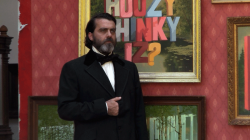
Beauty is Embarrassing
2012 -

Gregory Crewdson: Brief Encounters
2012 -
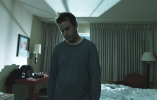
Sleepwalk with Me
2012 -

Liberal Arts
2010 -

Burn
2012 -
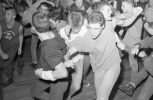
All-Ages: The Boston Hardcore Film
2012 -
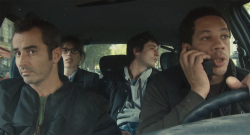
Polisse
2011 -

Sun Don’t Shine
2012 -

Headhunters
2011 -

Cerro Rico, Tierra Rica
2011 -
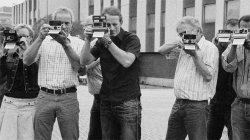
Time Zero: The Last Year of Polaroid Film
2011 -

Jason Becker: Not Dead Yet
2012 -

Detropia
2012 -

Girl Model
2011 -
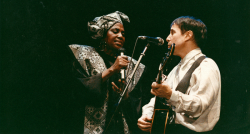
Under African Skies
2012 -

The Central Park Effect
2012 -
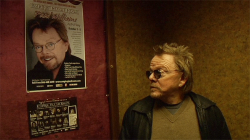
Paul Williams: Still Alive
2011 -

Trishna
2012 -

The Queen of Versailles
2012
We don’t do comments anymore, but you may contact us here or find us on Twitter or Facebook.



